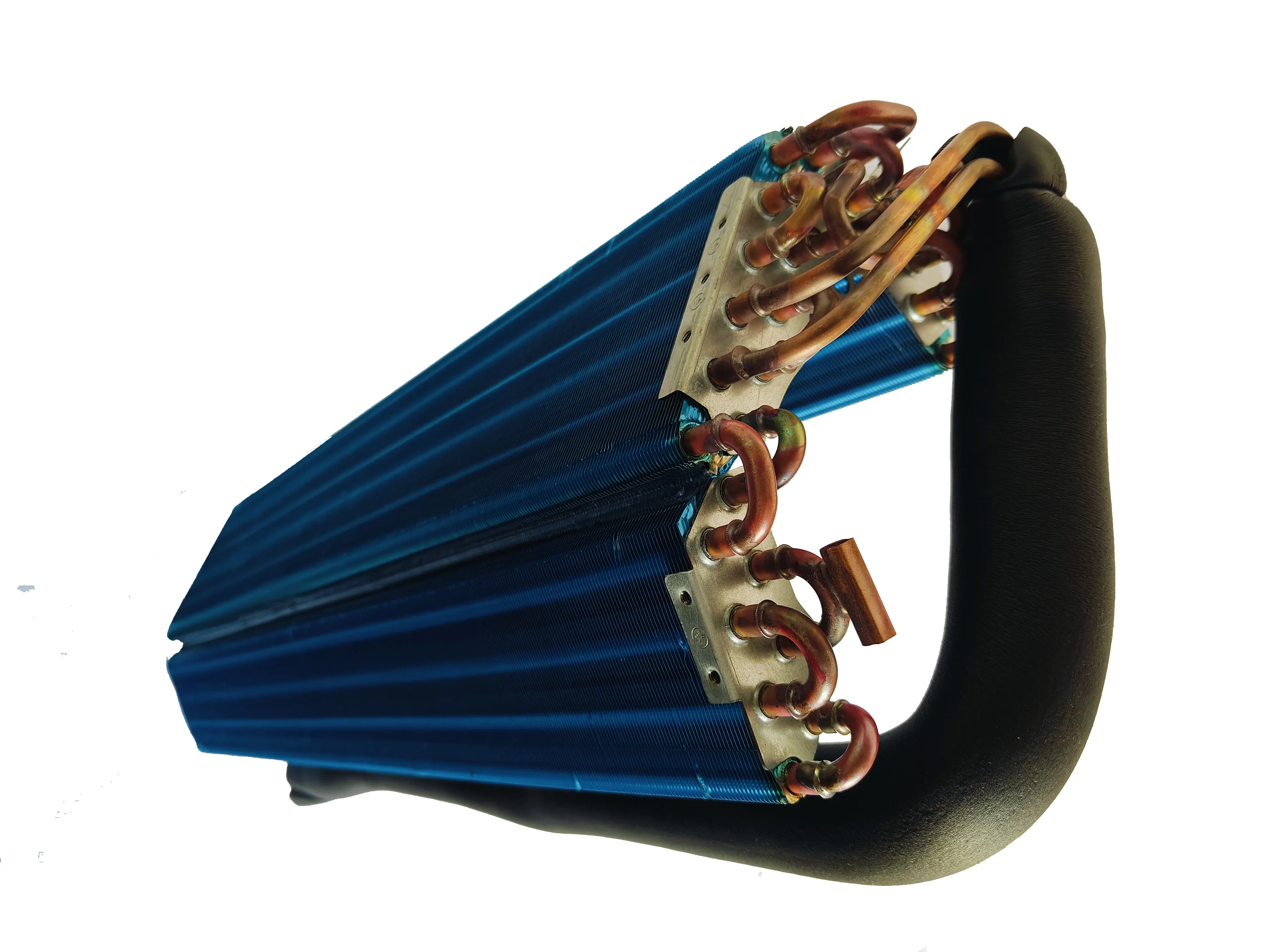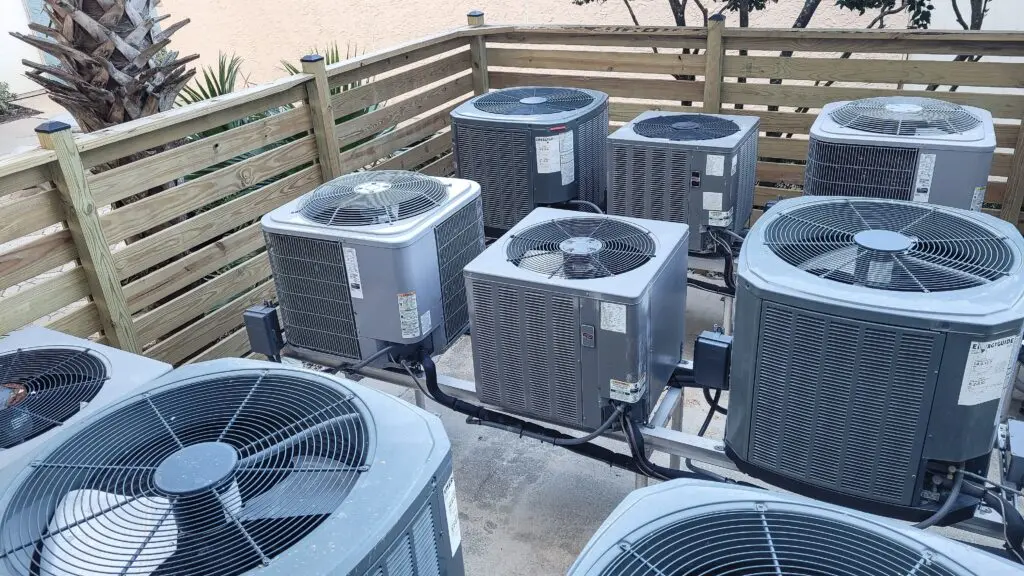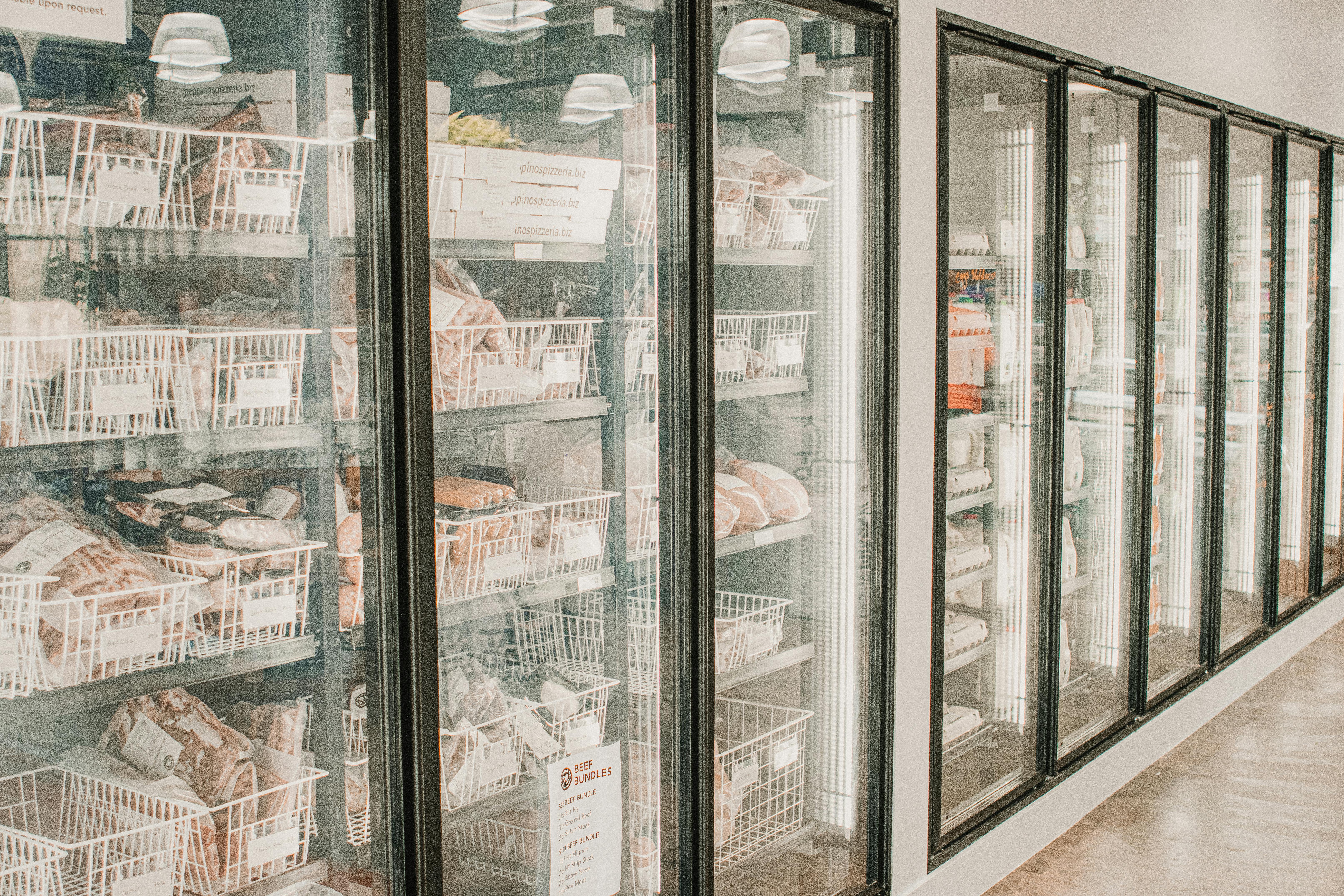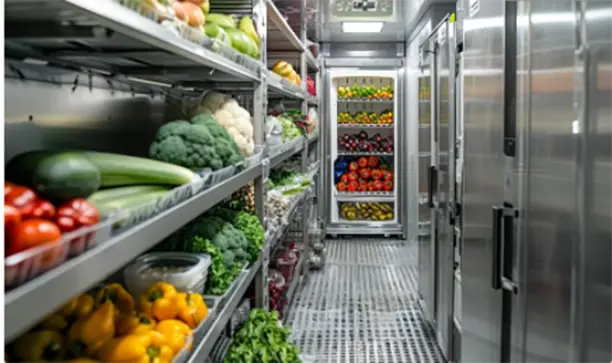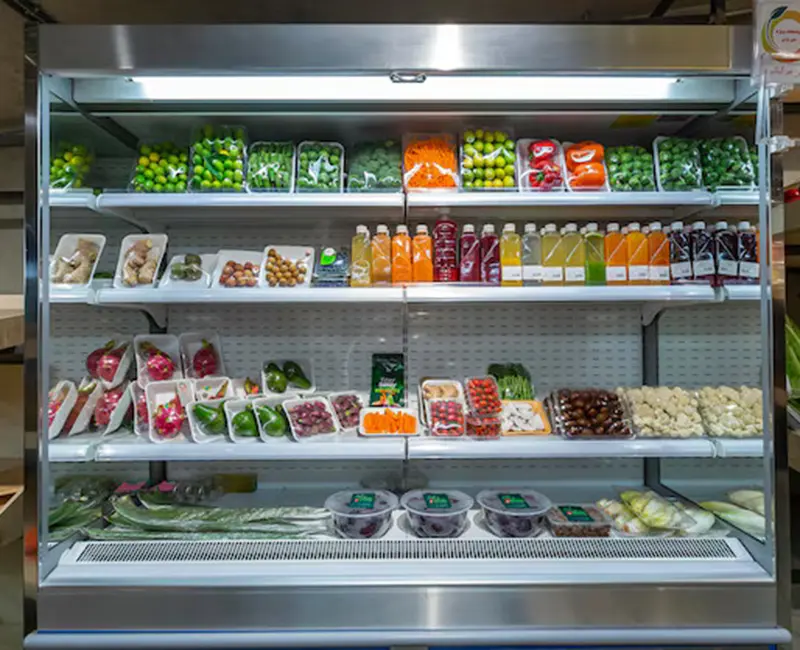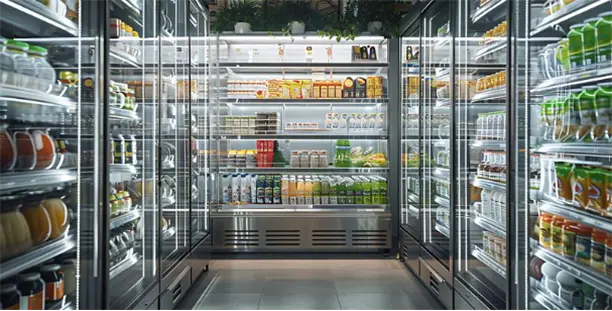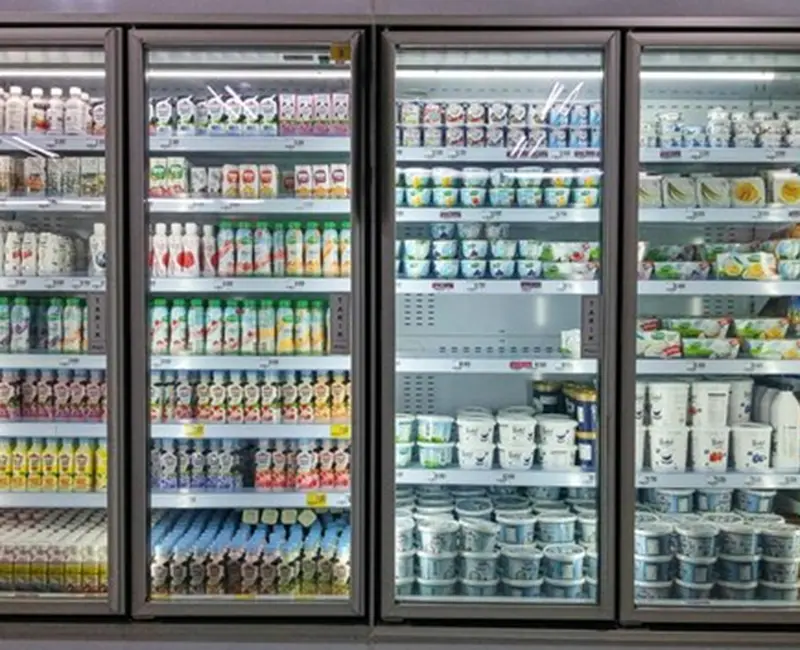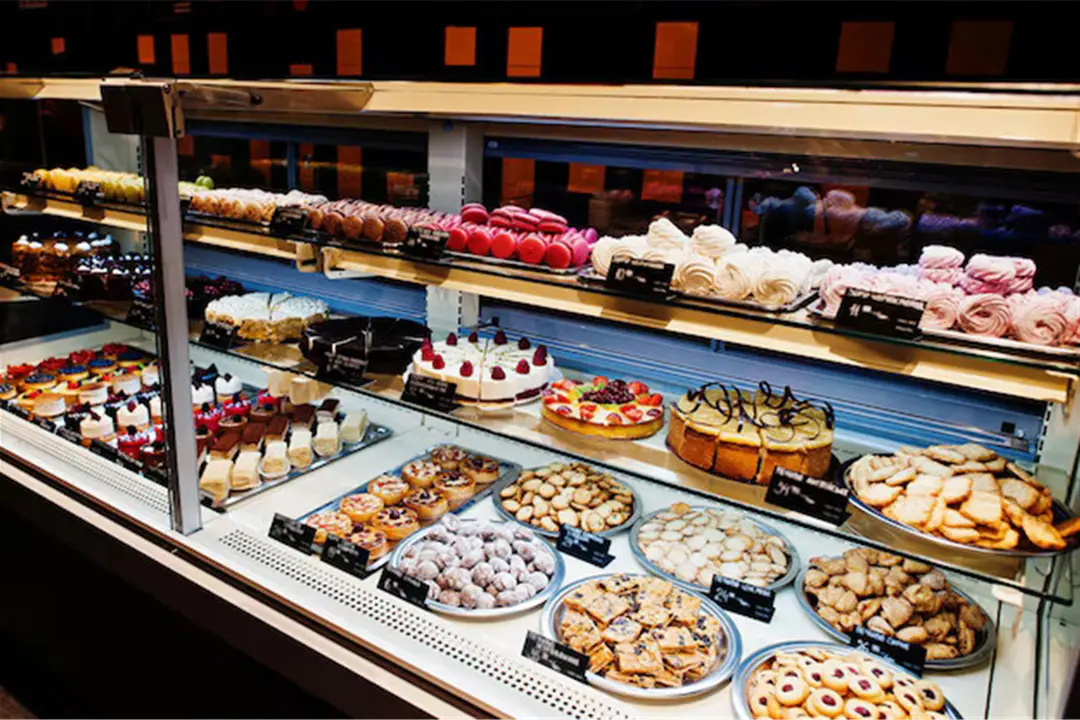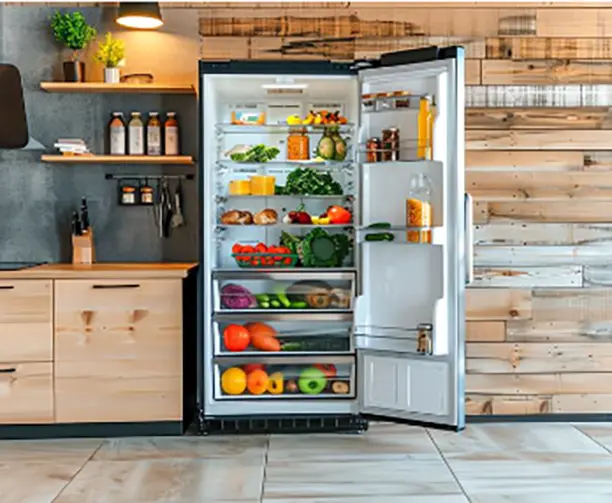Wire tube condenser quality standards and certifications?
A wire tube condenser plays a vital role in refrigeration and cooling systems. It helps transfer heat efficiently, ensuring optimal performance in appliances like refrigerators, freezers, and ice makers. Quality standards and certifications guarantee that these components meet safety, reliability, and environmental requirements. At Senjun, we focus on creating top-notch wire tube condensers. Our team specializes in developing solutions for various applications, including medical ultra-low temperature refrigerators and dehumidifiers. By adhering to strict standards, we ensure our products deliver exceptional performance and durability.
Key Takeaways
- Rules like ISO 9001 make sure wire tube condensers work well. This keeps customers happy and builds trust.
- Certifications like UL and CE prove safety and rules are followed. This helps gain trust and sell in more places.
- Following green rules like ISO 14001 and RoHS helps the planet. It cuts waste and avoids harmful materials.
- Checking and improving processes often keeps certifications valid. This ensures products stay good and meet rules.
- Meeting special standards like ASHRAE ensures cooling systems work their best.
Key Quality Standards for Wire Tube Condensers
ISO 9001: Quality Management Systems
At Senjun, we understand the importance of maintaining consistent quality in every wire tube condenser we produce. ISO 9001 certification helps us achieve this by establishing a robust Quality Management System (QMS). This system ensures that our manufacturing processes are efficient and reliable.
- It allows us to deliver products with consistent quality.
- It improves our production efficiency, reducing errors and waste.
- It enhances customer satisfaction by addressing feedback effectively.
By adhering to ISO 9001, we ensure that every wire tube condenser meets the highest standards of performance and reliability.
ISO 14001: Environmental Management Systems
Sustainability is a priority for us at Senjun. ISO 14001 certification reflects our commitment to reducing our environmental impact. This standard encourages practices that minimize waste, optimize resource use, and control pollution. By following these guidelines, we not only comply with environmental regulations but also contribute to a greener future.
Our dedication to sustainability aligns with the growing demand for eco-friendly products. Every wire tube condenser we manufacture reflects our efforts to protect the environment while maintaining exceptional quality.
Industry-Specific Standards
ASHRAE Standards for HVAC Systems
The American Society of Heating, Refrigerating, and Air-Conditioning Engineers (ASHRAE) sets critical standards for HVAC systems. These standards ensure that wire tube condensers used in refrigeration and cooling systems operate efficiently and safely. At Senjun, we design our products to meet these rigorous requirements, ensuring optimal performance in various applications.
UL (Underwriters Laboratories) Certifications
Safety is a non-negotiable aspect of our manufacturing process. UL certifications validate that our wire tube condensers meet stringent safety standards. These certifications cover aspects like electrical safety, fire resistance, and overall product reliability. By achieving UL certification, we demonstrate our commitment to delivering safe and dependable products to our customers.
Regional and International Standards
CE Marking for European Markets
When I design products for the European market, I always prioritize CE marking. This certification ensures that our wire tube condensers comply with the European Union's health, safety, and environmental protection standards. It acts as a passport for products to be sold across Europe without additional testing or approvals. At Senjun, we follow strict guidelines to meet these requirements. This allows us to deliver reliable and safe products to our European customers.
CE marking also demonstrates our commitment to quality and safety. It reassures customers that our products meet the highest standards. By adhering to these regulations, I ensure that our wire tube condensers perform efficiently while maintaining compliance with European laws.
RoHS Compliance for Environmental Safety
Environmental safety is a core value at Senjun. I take pride in ensuring that our products meet RoHS (Restriction of Hazardous Substances) compliance. This standard restricts the use of hazardous materials like lead, mercury, and cadmium in electrical and electronic equipment. By following RoHS guidelines, I help reduce environmental pollution and promote sustainable practices.
RoHS compliance also aligns with the growing demand for eco-friendly products. Customers today care about the environmental impact of the items they purchase. By offering RoHS-compliant wire tube condensers, I contribute to a cleaner and safer environment while meeting customer expectations.
BIS Certification for Copper and Copper Alloy Tubes
For products sold in India, BIS (Bureau of Indian Standards) certification is essential. This certification ensures that copper and copper alloy tubes used in our wire tube condensers meet specific quality and safety standards. At Senjun, I make sure that all materials comply with BIS requirements. This guarantees durability and reliability in our products.
BIS certification also enhances customer trust. It assures them that our products meet the stringent standards set by the Indian government. By adhering to BIS guidelines, I ensure that our wire tube condensers deliver exceptional performance in diverse applications.
Importance of Quality Standards and Certifications
Ensuring Product Safety and Reliability
I believe that quality standards play a crucial role in ensuring the safety and reliability of every product we manufacture. At Senjun, we design each wire tube condenser with consumer safety in mind. By adhering to strict standards, we minimize potential hazards and provide peace of mind to our customers. Compliance also reflects our commitment to delivering consistent and dependable products. This builds trust and reassures consumers that they are investing in high-quality solutions.
Meeting these standards also ensures legal compliance. This not only supports ethical business practices but also empowers consumers. Clear labeling and disclosures allow them to make informed decisions based on their specific needs. For me, this is about more than just meeting regulations; it’s about creating products that people can rely on every day.
Enhancing Market Competitiveness
In today’s competitive market, quality certifications give us a significant edge. They act as a mark of excellence, setting our products apart from others. When customers see that our wire tube condensers meet international standards, they know they are choosing a product that delivers superior performance and durability. This recognition strengthens our brand reputation and attracts more customers.
Certifications also open doors to new markets. For example, CE marking allows us to sell our products across Europe without additional testing. This not only expands our reach but also demonstrates our ability to meet diverse market requirements. I see this as a win-win for both our business and our customers.
Meeting Regulatory and Legal Requirements
Compliance with regulatory and legal requirements is non-negotiable for me. It ensures that our products meet the laws and standards of the regions where they are sold. This protects us from potential legal issues and builds confidence among our customers. They know that every wire tube condenser from Senjun meets the highest safety and quality standards.
By staying updated on regulations, we also adapt to changing market demands. This proactive approach helps us maintain our leadership in the industry. For me, it’s about more than just following rules; it’s about setting a benchmark for quality and reliability.
Building Consumer Trust and Confidence
Building trust with consumers is essential for any business. I believe that adhering to quality standards and certifications plays a key role in achieving this. When customers see that a product meets recognized standards, they feel confident about its safety, reliability, and performance. This is especially true for technical components like a wire tube condenser, which directly impacts the efficiency of refrigeration and cooling systems.
At Senjun, I prioritize transparency in every step of the manufacturing process. Certifications like ISO 9001 and UL demonstrate that our products undergo rigorous testing and meet strict guidelines. These certifications act as a seal of approval, reassuring customers that they are investing in a dependable product. I also ensure that our products comply with regional standards, such as CE marking for Europe and BIS certification for India. This shows our commitment to meeting the unique needs of different markets.
I’ve noticed that consumers today are more informed than ever. They research products, compare options, and look for certifications before making a purchase. By offering certified products, I help them make confident decisions. This trust not only leads to repeat business but also strengthens our reputation in the industry. For me, it’s about more than just selling a product. It’s about building lasting relationships with customers through quality and reliability.
Benefits of Adhering to Quality Standards
Improved Product Performance and Durability
I’ve seen firsthand how adhering to quality standards improves the performance and durability of our products. At Senjun, we follow strict guidelines to ensure every wire tube condenser we produce meets the highest benchmarks. This attention to detail enhances the efficiency of our products, allowing them to perform optimally in demanding applications like medical ultra-low temperature refrigerators and ice makers.
Durability is another key benefit. By using certified materials and processes, I ensure that our condensers withstand wear and tear over time. This reduces the need for frequent replacements, saving costs for our customers. For me, it’s about creating products that deliver long-term value while maintaining reliability in critical systems.
Streamlined Manufacturing Processes
Quality standards also help me streamline our manufacturing processes. By following established protocols, I can identify inefficiencies and eliminate waste. This not only reduces production costs but also optimizes resource utilization. For example, our adherence to ISO 9001 ensures that every step of our production process is well-documented and efficient.
Here’s a quick look at some of the benefits manufacturers like us gain from adhering to these standards:
| Benefit | Description |
|---|---|
| Efficiency and Waste Reduction | Streamlining processes, reducing waste, and optimizing resources lead to lower production costs. |
| Market Competitiveness | ISO certification enhances attractiveness to customers and opens new market opportunities. |
| Regulatory Compliance and Risk Management | Aligning with standards reduces non-compliance risks and promotes proactive risk management. |
For me, these improvements translate into better products and a more sustainable manufacturing approach.
Access to Global Markets
Adhering to quality standards opens doors to global markets. I’ve noticed that certifications like CE marking and RoHS compliance make it easier for us to sell our products internationally. These certifications assure customers that our wire tube condensers meet their region’s safety and environmental requirements.
Several factors enable access to global markets:
- Technological advancements drive innovation and efficiency.
- Changing consumer preferences lead to increased demand for sustainable solutions.
- Economic factors like rising disposable incomes and urbanization expand market access.
- Regional dynamics, including trade agreements and infrastructure, enhance operational efficiency.
At Senjun, I leverage these factors to expand our reach. By meeting international standards, I ensure that our products are not only competitive but also aligned with the needs of diverse markets. This approach helps us grow while maintaining our commitment to quality and sustainability.
Reduced Environmental Impact
At Senjun, I prioritize sustainability in every step of the manufacturing process. Producing wire tube condensers with reduced environmental impact benefits not only the planet but also our customers. By adhering to strict quality standards, I ensure that our products contribute to a greener future.
One way I achieve this is by focusing on energy efficiency. Wire tube condensers designed with advanced technology consume less energy during operation. This reduces the carbon footprint of appliances like refrigerators and freezers. I also ensure that our products have a longer lifespan. Durable components mean fewer replacements, which minimizes waste and conserves resources.
Another key factor is the use of natural refrigerants and efficient designs. These innovations lower the environmental impact of cooling systems. Natural refrigerants, for example, have a much lower global warming potential compared to synthetic alternatives. Efficient designs further enhance performance while reducing energy consumption.
- Improved energy efficiency ensures lower power usage.
- Longer lifespan reduces waste and the need for frequent replacements.
- Natural refrigerants and efficient designs minimize environmental harm.
I believe that every small step toward sustainability makes a big difference. By producing eco-friendly wire tube condensers, I help customers reduce their environmental footprint. At the same time, I align with global efforts to combat climate change.
At Senjun, I remain committed to creating products that balance performance with environmental responsibility. This approach not only meets the growing demand for sustainable solutions but also reflects our dedication to protecting the planet for future generations.
Process of Obtaining Certifications
Initial Assessment and Gap Analysis
The certification process begins with an initial assessment. At this stage, I evaluate the current state of our manufacturing processes at Senjun. This helps me identify areas that need improvement to meet specific quality standards. I focus on understanding the requirements of certifications like ISO 9001 or CE marking. By comparing these requirements with our existing practices, I can pinpoint gaps that need to be addressed.
For example, I assess whether our wire tube condensers comply with standards such as IS 1545:1994. I also review testing protocols for materials like solid drawn copper and copper alloy tubes. This step ensures that our products meet the necessary benchmarks for safety and performance. Additionally, I evaluate our manufacturing infrastructure and quality control capabilities. This comprehensive analysis lays the foundation for a successful certification process.
Documentation and Implementation
Once I identify the gaps, I move on to documentation and implementation. This step involves creating detailed records of our processes and aligning them with certification requirements. At Senjun, I ensure that every aspect of our production, from material sourcing to final assembly, is well-documented. This transparency not only simplifies the certification process but also improves overall efficiency.
Key documents required for certification include:
- Compliance records for specific standards like IS 1545:1994.
- Testing reports for copper and copper alloy tubes.
- Quality control procedures and manufacturing evaluations.
After completing the documentation, I implement the necessary changes. This might involve upgrading equipment, training staff, or refining production workflows. These adjustments ensure that our wire tube condensers meet the highest standards of quality and reliability.
Internal and External Audits
Audits play a crucial role in the certification process. I start with internal audits to verify that our processes align with the required standards. These audits help me identify any remaining issues and address them before the external evaluation. At Senjun, I conduct thorough inspections of our facilities and review compliance records to ensure everything is in order.
External audits follow, conducted by certification bodies. These audits include on-site inspections and compliance checks. The auditors evaluate our practices, ensuring that we adhere to the necessary standards. Maintaining certifications like ISO 9001 requires regular audits. These evaluations help me document critical processes, maintain records, and establish clear protocols. Over time, this commitment to compliance strengthens our reputation and ensures long-term success.
By following this structured approach, I ensure that Senjun’s wire tube condensers meet global quality standards. This not only enhances product reliability but also builds trust with our customers.
Certification and Ongoing Compliance
Maintaining Certification Through Regular Audits
At Senjun, I prioritize maintaining our certifications through regular audits. These audits ensure that our wire tube condensers consistently meet the required quality and safety standards. I schedule internal audits frequently to review our processes and identify areas for improvement. This proactive approach helps me address potential issues before they escalate.
External audits, conducted by certification bodies, play an equally important role. These evaluations verify that our manufacturing practices align with global standards like ISO 9001 and CE marking. I prepare thoroughly for these inspections by keeping detailed records and ensuring that every step of our production process adheres to the required guidelines.
Tip: Regular audits not only help maintain certifications but also improve overall efficiency and product quality.
I view audits as an opportunity to refine our operations. By analyzing audit findings, I can implement changes that enhance our manufacturing processes. This commitment to continuous improvement strengthens our reputation and ensures that Senjun remains a trusted name in the industry.
Updating Processes to Meet New Standards
Standards evolve over time, and I believe it’s essential to stay ahead of these changes. At Senjun, I monitor updates to industry regulations and certification requirements closely. This allows me to adapt our processes promptly, ensuring that our products remain compliant.
When a new standard emerges, I start by reviewing its requirements. I then assess our current practices to identify gaps. For example, if a new environmental regulation mandates the use of eco-friendly materials, I work with our suppliers to source compliant components. I also train our team to implement the updated processes effectively.
Note: Staying updated with new standards demonstrates a commitment to innovation and customer satisfaction.
By updating our processes, I ensure that Senjun’s wire tube condensers meet the latest benchmarks for quality, safety, and sustainability. This forward-thinking approach not only keeps us compliant but also positions us as a leader in the industry.
Quality standards and certifications play a vital role in ensuring the safety, reliability, and environmental compliance of every wire tube condenser. They benefit manufacturers by streamlining processes and opening global markets. Consumers gain confidence in durable, high-performing products, while the environment benefits from sustainable practices. At Senjun, I remain committed to producing certified, high-quality wire tube condensers that meet these rigorous standards. I encourage manufacturers to prioritize compliance. This approach not only ensures long-term success but also builds trust and contributes to a greener future.
FAQ
What is a wire tube condenser used for?
A wire tube condenser transfers heat in refrigeration and cooling systems. I use it in appliances like refrigerators, freezers, and ice makers to ensure efficient cooling. At Senjun, I design these components to deliver optimal performance in various applications, including medical and commercial systems.
Why are certifications important for wire tube condensers?
Certifications ensure that wire tube condensers meet safety, quality, and environmental standards. I rely on these certifications to guarantee product reliability and compliance with regulations. At Senjun, I prioritize certifications like ISO 9001 and CE marking to build trust and deliver dependable solutions.
How does Senjun ensure product quality?
At Senjun, I follow strict quality standards like ISO 9001 and conduct regular audits. I also use high-grade materials and advanced manufacturing techniques. This approach ensures that every wire tube condenser meets the highest benchmarks for performance, durability, and safety.
Are Senjun’s wire tube condensers environmentally friendly?
Yes, I design Senjun’s wire tube condensers with sustainability in mind. I ensure compliance with RoHS standards, use eco-friendly materials, and focus on energy-efficient designs. This reduces environmental impact while maintaining exceptional product quality.
Can Senjun’s products meet international market requirements?
Absolutely. I ensure that Senjun’s wire tube condensers comply with global standards like CE marking for Europe and BIS certification for India. This allows me to deliver high-quality products that meet the unique needs of diverse markets worldwide.









